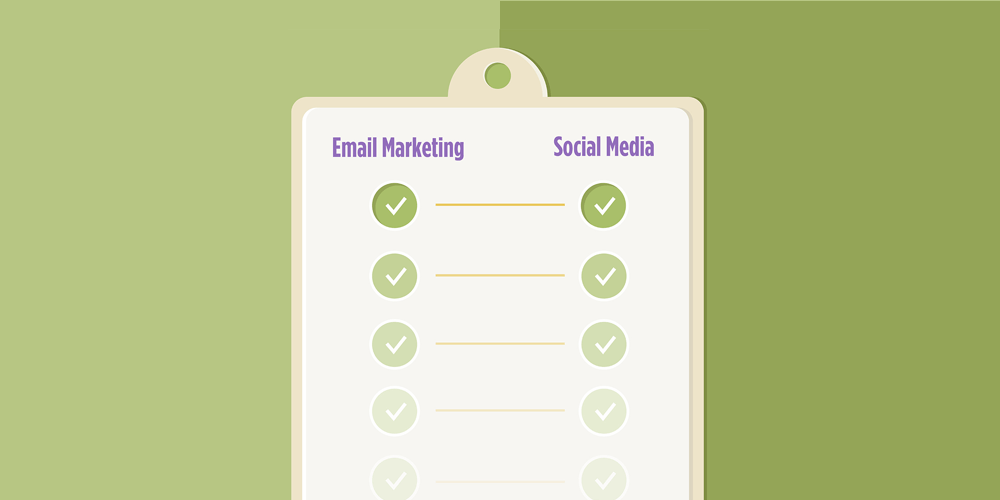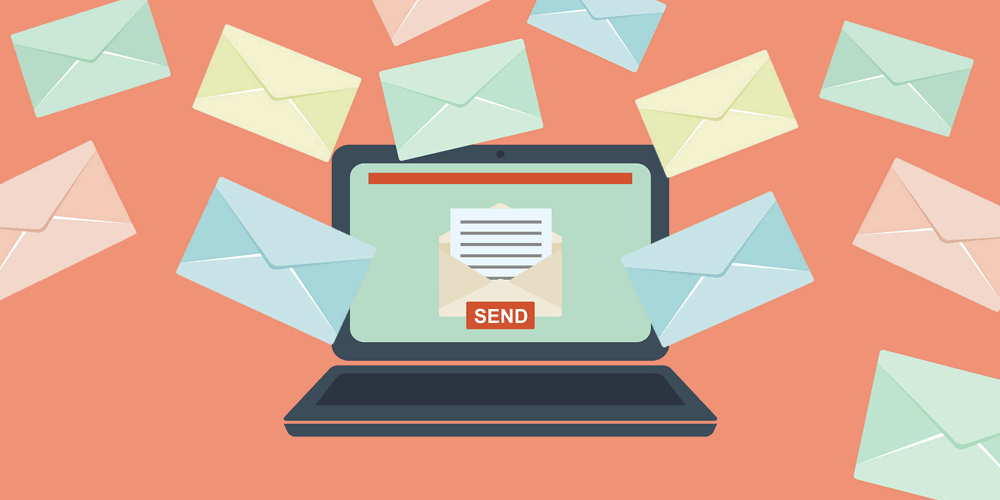With almost everyone on the internet having social media handles and accounts, there is an unspoken competition between social media networks and email.
This is because both are indeed useful. Most marketers in the modern days of the internet will promote their business through both social media and email, despite they can get great results using either one. But which one is more effective?
It depends. But what is certain, email marketing is not going anywhere anytime soon.
Social media has become a major fixture in the online marketing landscape, with Facebook, Instagram, Twitter and a slew others that make it easier than ever to connect, share updates and promotions They have helped many brands grow, and it's really gratifying to see them share posts in real time.
But email on the other hand, it has been around a lot longer than social media networks. It's more mature and unmistakeably has just one purpose in mind: communicate. And that without needing likes, shares, followers and other social media incentives.
On the surface, email is the primary way for ID confirmation on the web. Why? Because it's still irreplaceable. Going deeper, here are the reasons why email is still special:

Social Media Users Use Email. But Not The Other Way Around
As previously mentioned, people tend to use their email address to register to social media networks and other online services. But not every email users use social media networks.
What this mean, there should be a lot more email addresses swirling around the web than social media accounts, combined.
To be successful in business, you need to talk to the people where the people are. While they’re certainly on social networks, but for businesses, people are more likely to engage through their email inboxes. For your business to make use of this, you need to apply all the rules of great copywriting to convert leads from your marketing campaigns.
Email Is More Personal
We see a lot of posts from both brands and ordinary social media users. They may send plenty of posts each day to drive people to their site and/or buy their products. But among that many posts brands are sharing on social media networks, they tend to send even more personal messages to potential buyers.
From direct email to newsletter, email traffic is a lot.
When your business send a custom message to your social media followers, there’s a huge chance that a large portion of the audience won't see it. After all, social media networks are driven by algorithms. By following thousands of highly active accounts, no person can keep up with the amount of posts social media networks are offering.
But with emails, it's a straightforward process: the email you send is delivered to the receivers' inbox. Plain and simple. Unless your email is a spam, people will see it. Despite the fact that they may delete it before reading, but they will definitely know that it's there in their inboxes before they deleted it.
No Tricks, No Gimmicks
Following the above, most if not all social media platforms use some sort of algorithms to decide what post should appear on users' feed.
So for example, if you are frequently engaging to your someone's post, whether it's a simple like, or comment or just a click, that person will appear more often on your feed than those you never engage with. This is why businesses buy ads to put their messages up front and clearly visible on people's feed.
This doesn't apply for emails.
While email providers may show ads in users' inboxes, but ordinary email should be there too, no matter what.
Your Email Is Your Property
Yes, social media has the power to make anything go viral. Things can spread like wildfire, amplifying the message to places beyond your reach. And yes, social media is a powerful tool to reach and connect to people with great accuracy, and there is no doubt that the more modern approach is a lot more efficient.
But it's not always that effective.
This is because on social media networks, you're plainly using someone else' platform. Your message on Facebook, for example, should follow Facebook's rules and policies. On Twitter, things can be different. On Snapchat, another rules to take care of.
But when using email for marketing, you need to follow just one rule, and that rule is to not spam. As long as your follow this rule, nothing will be taken away from you. For emails, the rule is the same, and will always stay the same.
Related: Creating A Marketing Strategy And Customer Connections Without Invading Their Privacy

Email Is More Professional
How often do we hear two people connect with each other on social media networks to talk about something, but when things eventually get serious, they will either use instant messaging platform, personal message or email? The answer is plenty of times.
While businesses do use Facebook, Twitter and other social media networks of their choice to communicate with their audience, but when it comes to building business relationship and communicating with partners and clients, the most "serious" form of communication method, is using some sort of personal communication that is away from people's eyes.
And the best and the most professional method, is no other than email.
For a business, would you rather use a free-to-use platform to communicate your carefully crafted marketing message, or talk to your customers using a professional email that ends with your business name? Most likely, you'll choose the latter.
Social media facilitates better and easier form of communication, but email has that professional gloss that makes your message a lot more professional.
The Takeaway
Does all of this mean you shouldn't bother with social media marketing? Not at all. Email marketing can be a stronger marketing approach, but social media can give that sweet taste of brand recognition. What brand that doesn't simply like a ton of followers?
When building your online marketing strategies, both email and social media should go together, as properly implementing them should offer great dividends.
Social media does have a few distinct advantages of its own. For one thing, it helps you connect with new people. Your potential customers, for example, may want to know more about your business, before connecting with you. And social media is a great place to show that presence.
But email, the old and traditional form of communication, still has a cozy place in businesses' hearts.
So to be clear, both social media marketing and email marketing are well worth your time and efforts. In the modern days of the internet marketing, don't expect to separate the two.